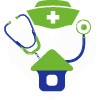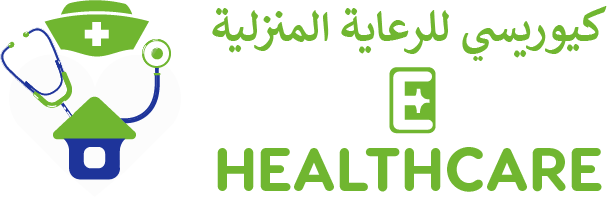What is a Head-to-Toe Examination?
The head-to-toe examination is a comprehensive health assessment that aims to provide a holistic view of an individual’s overall well-being. Conducted by qualified medical professionals, such as physicians, nurse practitioners, or healthcare experts, this examination involves a combination of observation, palpation, and other diagnostic techniques to gauge the health status of the patient.
The key components of a head-to-toe examination include:
1. Head and Neck Examination: This entails assessing the eyes, ears, nose, throat, lymph nodes, and thyroid gland for any abnormalities, ensuring proper sensory function and thyroid health.
2. Chest and Lung Examination: Listening to the lungs and heart for abnormal sounds aids in detecting respiratory or cardiovascular issues.
3. Abdominal Examination: Palpating the abdomen helps identify tenderness, masses, or other potential abnormalities in the liver, spleen, or other organs.
4. Musculoskeletal System Examination: The healthcare provider examines the joints, muscles, and bones to identify inflammation, injury, or musculoskeletal disorders.
5. Skin Examination: Inspecting the skin for rashes, lesions, or other skin conditions provides insights into the individual’s overall health.
6. Neurological Examination: Testing reflexes, sensation, and coordination offers valuable information about the function of the nervous system.
7. Extremities Examination: Assessing the arms and legs for swelling, deformities, or circulation issues can reveal potential health concerns.
8. General Appearance Observation: Observing the overall appearance, posture, and signs of distress can provide clues about the individual’s health and well-being.
Why is it Essential?
The head-to-toe examination holds significant importance for maintaining optimal health and well-being. Let’s explore some key reasons why this examination is essential:
1. Early Detection of Health Issues: Regular head-to-toe examinations facilitate the early detection of potential health problems. Identifying issues at an early stage allows for timely intervention, increasing the chances of successful treatment and minimizing complications.
2. Preventive Healthcare: Prevention is always better than cure. By undergoing periodic head-to-toe examinations, individuals can stay proactive in managing their health and taking preventive measures against potential health risks.
3. Baseline for Future Comparisons: Establishing a baseline of one’s health through a head-to-toe examination enables healthcare professionals to track changes over time. This is especially valuable in identifying subtle shifts that may indicate the onset of certain health conditions.
4. Peace of Mind: Knowing that one has undergone a comprehensive evaluation of their health can bring a sense of reassurance and peace of mind, promoting mental well-being.
5. Management of Chronic Conditions: For individuals with chronic health conditions, regular head-to-toe examinations help monitor disease progression and ensure that their management plans are on track.
6. Holistic Approach to Healthcare: The head-to-toe examination provides a holistic view of an individual’s health, considering all body systems and their interconnections. This comprehensive evaluation is essential for personalized care and treatment planning.
Consequences of Neglecting Head-to-Toe Examination
Neglecting a head-to-toe examination can have several adverse effects on one’s health:
1. Missed Diagnosis: Without a thorough examination, certain health conditions may go unnoticed until they reach an advanced stage, making treatment more challenging.
2. Delayed Treatment: Late detection of health issues can lead to delayed treatment, increasing the risk of complications and reducing the chances of successful recovery.
3. Increased Healthcare Costs: Neglecting preventive healthcare measures can result in higher medical expenses due to the need for extensive treatment for advanced health problems.
4. Decreased Quality of Life: Undiagnosed or untreated health conditions can significantly impact an individual’s quality of life, limiting their ability to perform daily activities and pursue their interests.
The benefits of choosing Lifecare home healthcare include:
1. Home Comfort: You can undergo the examination in the comfort of your own home, reducing stress and creating a relaxed environment.
2. Time-Saving: Eliminate the need for travel and waiting room times, saving valuable time and energy.
4. Personalized Care: Enjoy personalized attention and care during the examination, fostering a positive patient experience.
Benefits of a Head-to-Toe Examination
The advantages of regular head-to-toe examinations are abundant:
1. Comprehensive Health Evaluation: A thorough assessment ensures that no health issues are overlooked, allowing for early intervention.
2. Early Detection of Silent Conditions: Some health conditions may be asymptomatic initially, and a head-to-toe examination can uncover these hidden conditions.
3. Preventive Measures: By identifying risk factors and potential health concerns, individuals can take proactive measures to prevent disease progression.
4. Promotion of Overall Well-Being: Regular examinations contribute to better physical and mental health, leading to an improved overall quality of life.
5. Empowerment Through Knowledge: Understanding one’s health status empowers individuals to make informed decisions about their lifestyle and healthcare choices.
5. Empowerment Through Knowledge: Understanding one’s health status empowers individuals to make informed decisions about their lifestyle and healthcare choices.
Remember, taking care of yourself during a fever is essential, and the road to recovery starts with rest, hydration, and proper medical guidance

